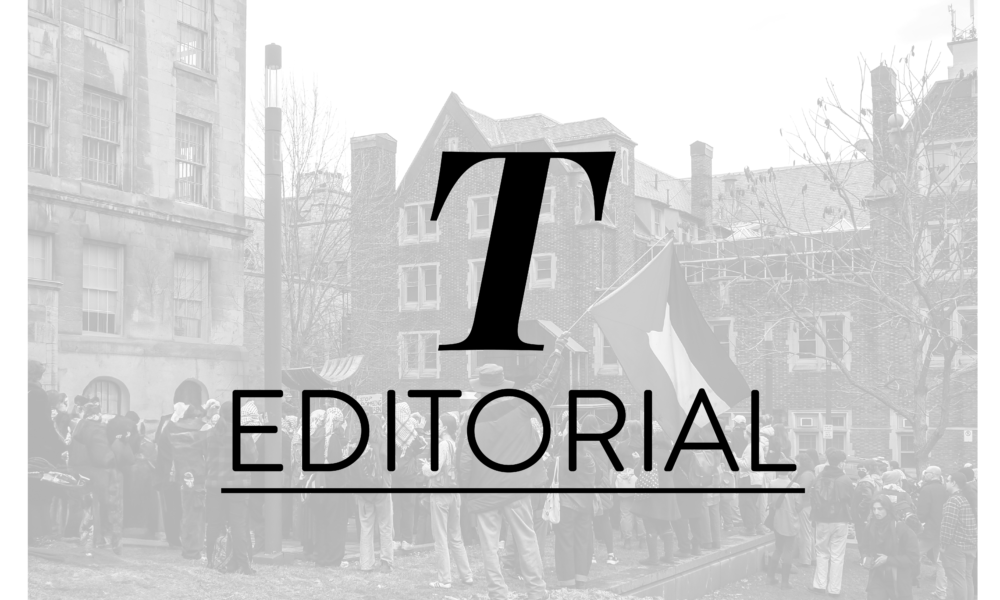On Oct. 1, the Students’ Society of McGill University (SSMU)’s Board of Directors (BoD) abruptly dismantled the student-run food accessibility collective known as Midnight Kitchen (MK), firing its staff and locking the doors to its kitchen space without any prior warning.
SSMU’s executive termination of Midnight Kitchen betrays the fundamental duty of a student union to serve and uplift its student body. SSMU’s decision to close MK—without proper consultation with the kitchen collective beforehand—demonstrates an ignorance of the practical specificity of MK’s work, and an exploitation of inconsistent and selective information to sensationalize the circumstances surrounding MK’s dismantlement.
MK is a non-profit, worker- and volunteer-run collective with the core mission of providing affordable, healthy, nut-free and vegan food to McGill students and the surrounding community. MK’s programs include educational workshops on food prep and food politics, free lunches, and solidarity servings.
The discrepancies between the BoD’s rationale for shutting down MK and the nuanced realities underlying these accusations lay bare SSMU’s disregard for clear and respectful communication with its student organizations. In an email sent to the study body, the BoD claimed that MK had failed to meet its fee mandate, providing only two weekly meals instead of five. In a statement regarding the restructuring of MK, the Quebec Public Interest Research Group at McGill (QPIRG-McGill) clarified this reported shortcoming, explaining that in addition to its two weekly meal servings, MK also provides two to three solidarity meals for students and local communities, totalling four to five meals per week.
SSMU also claimed that MK did not spend enough of its budget directly on food. The email outlined that in 2023, MK spent 5.1 per cent of its $350,360 CAD budget on food, an amount that increased to 7.41 per cent in 2024, but, according to the BoD, remained insufficient. QPIRG contextualised this claim by outlining that the amount MK spent on food does not represent the true amount of food the kitchen acquires, as it sources a large portion of its ingredients free of cost from Moisson Montréal and local student farms, such as Les greniers agricoles and Élèves des Champs. The way in which SSMU offered data without providing context critical to its meaning is misleading and incomplete, demonstrating a failure to work in good faith with the collective to reach a compromise on financial and operational changes.
As a student society, SSMU’s most fundamental responsibility is to support its students and their organizations, not to antagonize and pit them against one another—as SSMU’s framing has done.
Instead, SSMU imposed a black-and-white business-centred conception of proper management onto MK’s operations—of which SSMU has little to no expertise. The Students’ Society neglected the practical obstacles inherent to running a kitchen and serving food. MK’s kitchen, for example, can only accommodate eight people; additionally, it has no dishwasher, meaning staff must clean everything by hand. These challenges are much more likely to be at the root of organizational shortfalls than the budgetary discrepancies it problematized.
SSMU’s unapologetic prioritization of austerity over MK’s critical social and political mandates undermines the collective’s capacity to provide food and education to students and local communities in need, and delegitimizes SSMU allyship with the student body. A student union that uses its bureaucratic power to confuse and mislead its members fails its most basic duty to serve its students—a failure that no amount of increased ‘efficiency’ can make up for.
Regardless of the details of MK’s funding or operational strategy, the manner with which SSMU addressed its grievances with the collective was deeply damaging, disrespectful, and dismissive. SSMU must commit to transparency, not use numbers and incomplete information to sensationalize its negotiations with the student organizations with whom it is supposed to be allied. As students, it is our responsibility to remain critical of the apparent legitimacy of numbers, to seek relevant context when assessing the efficacy of clubs and collectives, and to avoid passive acceptance of information shaped by SSMU’s bureaucratic power.
SSMU and its students are all on the same team, and we must treat each other as such.
//A previous version of this article stated that Midnight Kitchen is a non-profit, volunteer-run organization. In fact, it is a worker- and volunteer-run organization. This article has been modified to reflect this information. The Tribune regrets this error.//








